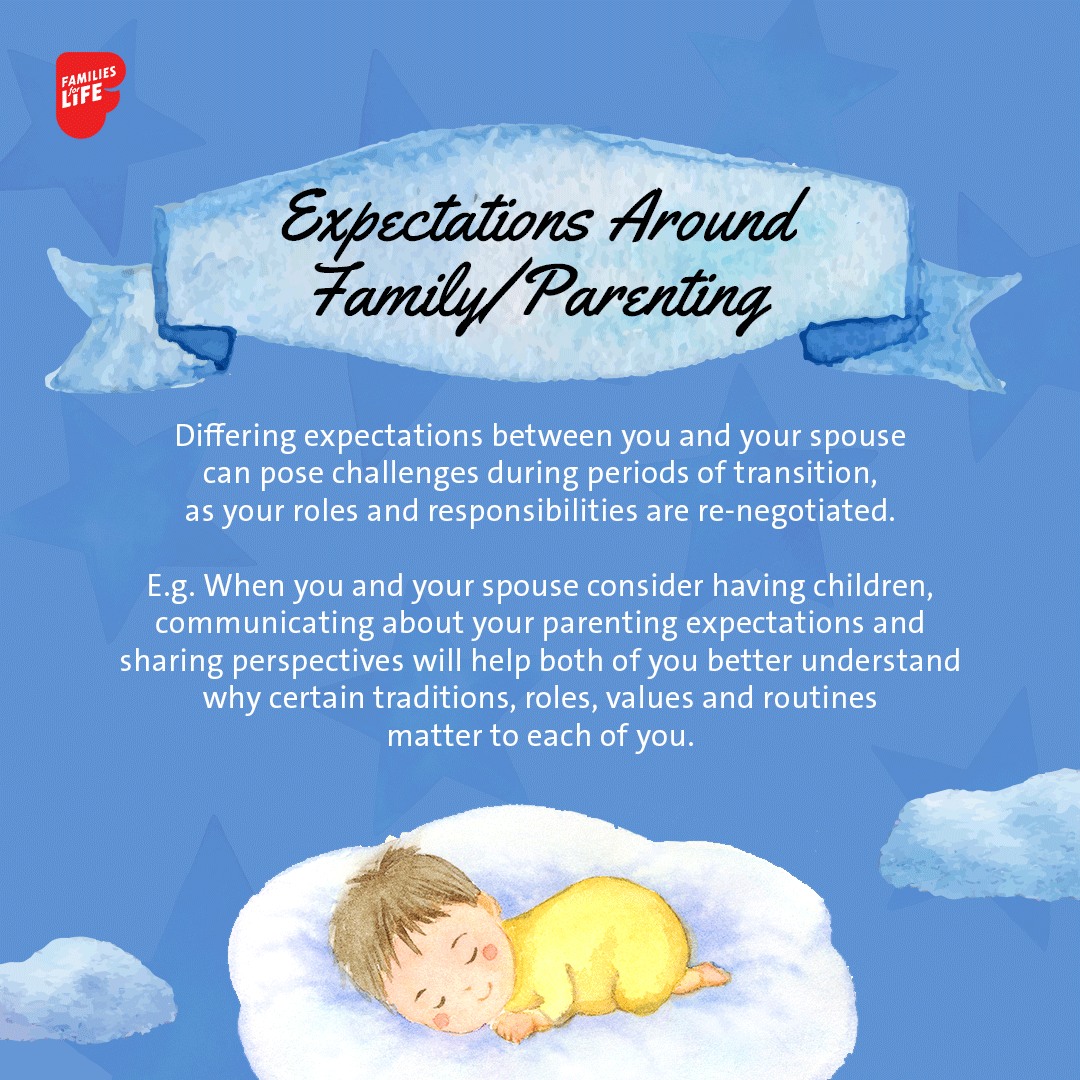Families For Life | Mini Marriage PREP Tips: Expectations in a Relationship
Expectation VS Reality

We are happiest when our expectations align closely with our reality. When your experiences fall short of your expectations, you’re likely to feel disappointed or frustrated. Many couples struggle with the unspoken expectations they bring into the relationship. You may not share your expectations because they operate under the surface and you’re hardly aware of them. You just grew up seeing things done a certain way and internalised those behaviours or beliefs as “normal.” Your spouse may have grown up in a different home with different experiences, so what’s “normal” or “expected” from each of you is bound to vary.
Sometimes we don’t discuss our expectations because we’re afraid our spouses will tease us or dismiss our desires. Others keep quiet about their expectations because they expect their spouses to read their minds - to know their needs and hopes without ever voicing them. This approach is sure to frustrate both of you!
In healthy relationships, spouses are typically eager to help and please each other, but it’s difficult to hit a target blindfolded. Clearly discussing your expectations for the relationship, and each other, gives you the best chance of having them met.
Expectations Around Family/Parenting

You probably had a few decades of life experience under your belt by the time you met your spouse. From childhood, you began taking in messages about housework, money, friendship, careers, spirituality, and love that have profoundly shaped your views as an adult. You and your spouse had different experiences along the way that greatly impact your expectations of each other. Especially during periods of transition, as roles and responsibilities are renegotiated, our expectations can pose challenges. Are they unrealistic? Unspoken? Unmet?
For example, as couples consider having children, they often realise their expectations around work and childrearing clash. If your mother was a stay-at-home parent who handled all childcare and domestic work, you may carry those expectations into your own marriage. However, if your spouse attended daycare or had a nanny as a child while their mother worked full-time, they may feel very differently. Who will be the primary caretaker? Who will provide financially? Who will manage tasks around the house? How will these choices affect your lifestyle and the kind of parents and spouses you hope to be?
Communicating about your parenting expectations and sharing your perspectives will help you better understand where your spouse comes from, and why certain values or expectations are so deeply-held for them. Then, if you decide to build a family together, you will have to determine which parts of your childhood and upbringing you want to share with your own kids one day, and which you’re ok to leave behind. Merging two different backgrounds can be a bit tricky, and you’ll have to communicate and negotiate as you work through which traditions, roles, values, and routines matter most to each of you, and why.
Adjusting Our Expectations

The PREP programme encourages couples to tackle expectations head on. The first step is to look at which expectations you have that may not serve your relationship and choose one to relax a bit. If you’re often disappointed with your spouse’s level of tidiness around the house, the expectation for how tidy the home “should” be and who does specific household tasks may need to be explored and adjusted. Instead of expecting your spouse to do 5 chores after work, 1-2 might appear more manageable. If we ask for help with the most critical tasks, we’re more likely to get our spouse’s buy-in than if we make the request too daunting.
And sometimes, we just need to be clearer about our expectations. Maybe our spouse does plan to empty the rubbish bin, but not until tomorrow morning. If we want it done now, we should convey that expectation clearly. “Honey, can you empty the rubbish bin after dinner?” sets a clearer expectation than, “Honey, can you empty the rubbish bin?” The second option is too open-ended and leaves a lot of room for misunderstanding.
While one partner may need to relax their high expectations on occasion, a central task of marriage is growth. If your spouse has an expectation of you that you could meet but haven’t, consider how you could work harder to step up in those areas. For example, if your spouse expects to have dinner together each night and you often run late, can you shift your longer meetings earlier in the day, or communicate with them earlier if you anticipate being delayed? A few small tweaks can show your spouse you’re listening and that you care – transforming frustration to connection.
If you like what you read, check out other mini marriage PREP tips here!